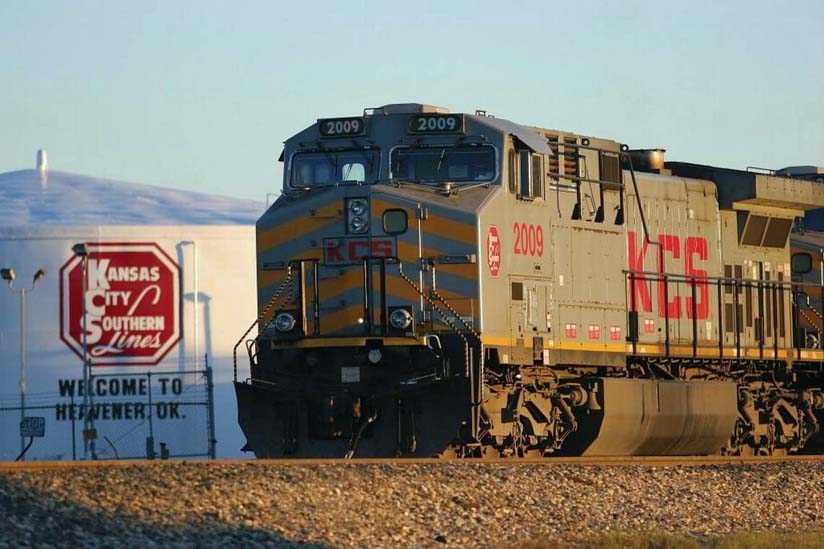
North America - Railway investors have enjoyed a decade of epic gains.
The fight for control of KCS suggests the party isn't over yet.
CP and CN have tabled competing bids for the venerable Midwestern rail operator.
Both bids place a staggering value on KCS.
Yet the price tags seem justified when placed against the strategic value of the acquisition.
Investors looking for a relatively safe way to play the reopening North American economy should take a long look at the Canadian rail stocks.
No matter what happens in the KCS battle, CP and CN can churn out steady profits.
Both are likely to benefit from the robust recovery that most economists see ahead over the next couple of years.
To be sure, future returns are unlikely to match the enormous gains of recent years.
The bidding war for KCS demonstrates that railways are no longer the hidden gem they were back in 2009, when Warren Buffett announced a US$44 billion bid for
Burlington Northern Santa Fe, the giant U.S. rail operator.
Since the Buffett acquisition, major North American railways have generated total returns of more than 800 percent on average for their
shareholders.
The six independent operators, CN, CP, KCS, CSX, NS, and UP, as well as BNSF (now a division of Mr. Buffett's Berkshire Hathaway Inc.) form an exclusive and
highly profitable club.
What makes them particularly attractive is that their core businesses are next to impregnable.
Given land acquisition costs and regulatory challenges, no one is building new rail networks these days.
This dearth of new entrants helps to explain why KCS is so valuable to potential suitors.
Its rail network stretches south from Kansas and far into Mexico.
A combination of KCS with either CP or CN would create the first railway to seamlessly connect Canada, the U.S., and Mexico.
So how much is that opportunity worth?
CP's US$29 billion offer amounts to 31 times what the market expects KCS to earn this year.
CN has fired back with a US$33.7 billion counter proposal that works out to more like 36 times forecast earnings.
To put that into perspective, Facebook Inc. and Apple Inc., both trade for around 28 times earnings.
It may seem ridiculous to put a higher valuation on a century old railway operator than a fast growing tech giant, but it is not as outrageous as it first
appears.
In its original presentation in March, CP argued that a merger of its rail network with KCS's would generate US$780 million in added EBITDA (earnings before
interest, taxes, depreciation, and amortization).
About US$600 million of that EBITDA would come from new revenue opportunities and about US$180 million from cutting costs.
Dan Fong, an analyst at Veritas Investment Research in Toronto, says achieving those targets would result in double-digit returns on the acquisition for
CP.
Assuming the US$780 million in synergies is achieved by 2025, the internal rate of return on the deal, a widely used measure of profitability, would be around
16 percent, Mr. Fong calculates.
Even if CP bumped its offer higher to match CN's, it could still generate an internal rate of return near 11 percent.
Mr. Fong says he has confidence in CP's ability to achieve the EBITDA gains it has outlined if its bid does win approval.
"Management has a track record of delivering on its promises," he said in an interview.
"If anything, I think the US$780 million estimate is probably low."
CN, of course, would benefit from many of the same synergies if its higher bid manages to take the prize.
But even if its offer ultimately fails, CN could wind up strengthening its competitive position by forcing rival CP to raise its bid.
The extra cost "could constrain CP's financial flexibility and potentially inhibit its ability to invest for growth," Mr. Fong noted in a recent
report.
How all of this will shake out is uncertain.
The Surface Transportation Board in the U.S. has to approve the acquisition and it could wind up rejecting either or both proposals.
It could also impose conditions on a successful bidder to maintain competition.
Meanwhile, the board of directors at KCS has to decide which offer is better for shareholders.
But all of that uncertainty may be obscuring the simple fact that Canadian railways are robust businesses well positioned to capitalize on the economic
rebound now under way.
Freight volumes are likely to expand as vaccines, low interest rates, and plentiful fiscal stimulus drive strong growth over the next couple of
years.
Meanwhile, the railways' dedication to wringing costs out of their systems remains intact.
Thanks to a strategy known as precision scheduled railroading, operating costs as a percentage of operating revenue keep falling.
By Mr. Fong's reckoning, both Canadian railways are trading below their intrinsic value, even ignoring any potential benefits from a KCS
acquisition.
He estimates CP to be worth $510 a share and CN to have a fair value around $150 a share.
His advice?
Own both.
Ian McGugan.
(because there was no image with original article)
(usually because it's been seen before)
provisions in Section 29 of the Canadian
Copyright Modernization Act.
